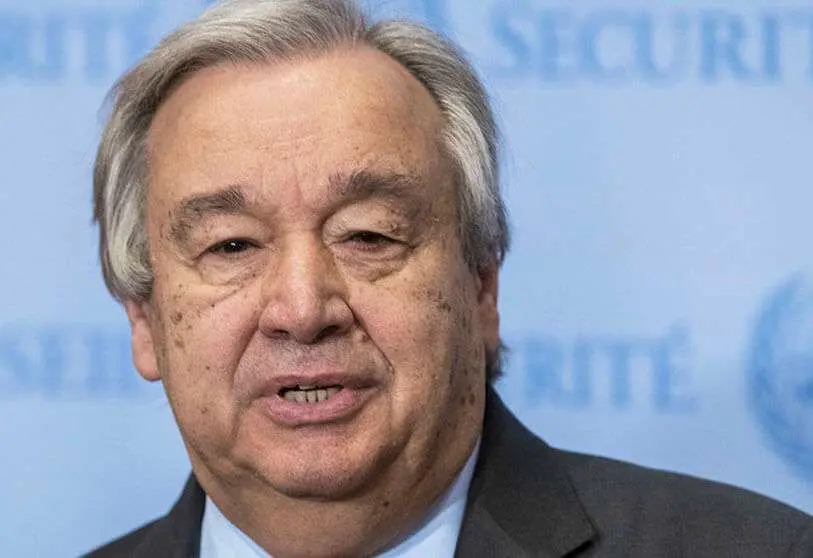The UN's unbearable lightness with the coronavirus

On March 12, 2020, with the pandemic confirmed by one of its many agencies, with governments around the world taking action like headless chickens, what is the United Nations waiting for to convene a meeting of all countries? If this supranational organization is useful for anything, it is to coordinate actions, even though in the last decades it has been more used to cultivate progressive goodism and to provoke controversy with its rapporteurs who are always inclined to be on the side of the supposedly needy. Today, with the disease rampant throughout the world, the UN must take charge of the situation, not to decide, but to harmonize, or at least so that for three days the heads of government of the almost two hundred countries can agree on some measure to combat this terrible world situation.
Doubts about the damage this COVID-19 may cause are now a thing of the past. The same writer has questioned the need for many of the measures that have been implemented over the last two and a half months. But that phase of discerning whether or not the coronavirus is as dangerous as they want us to believe has already been surpassed, because now the real danger to Humanity is not the virus, but the consequences it is causing, the damage to the economy it is causing and the lives of citizens. We could be paying for these consequences for years to come, even though we no longer see the microbe anywhere.
That is why we must all agree that the challenge for the human species at this time is to contain the advance of the disease, whether it is more deadly or less deadly. And for that reason it is urgent, convenient and imperative that countries articulate themselves within the globalization that has been so much defended, that now precisely must show its advantages and benefits. The European Union has not taken common decisions to combat the coronavirus until today, and much less to combat its effects on the economy, on employment, on the business activity that is the driving force of the world.
The restriction on travel to the United States from the countries that make up the Schengen area is unprecedented in a period of peace. Similar restrictions had been timidly adopted in Europe, such as the cancellation of flights from Italy to Spain announced by Moncloa 48 hours ago. The Americans are learning from the mistakes that the Old Continent has made, but Europe did not learn from the successes of China, which have now been demonstrated. The EU did not restrict flights from China, which Trump did on 31 January. A month of inactivity, as is likely to happen soon and as is already happening in a desolate and empty Italy, could sink the productive systems of the five continents, and you will be able to assess whether or not that is worthy of a special UN assembly for the comparison of data and measures.
The WHO is primarily responsible for what is happening. Just yesterday it criticised "the inaction" of governments, one more sway of its irresponsible discourse in which a few days it asked for calm due to the scarce impact on the health of this virus and the next day it declared epidemics and pandemics. The questioning of the effectiveness of its messages is necessary when world public opinion is swimming in confusion and misinformation. Clearly, it has failed to live up to its responsibilities.
And, finally, the task of the rulers in attacking the economic consequences. A veritable rosary of different implementations that have nothing to do with each other and that put the world's citizens on different levels, depending on whether their leaders are more or less responsible. Reducing taxes is not the same as delaying their payment, as the Spanish government has announced. German or French companies will be in a better position than Spanish ones to face the winter of activity that is presumed, if the fiscal measures are not equalized. Can a summit of leaders help to solve these small details? Logically, yes.

